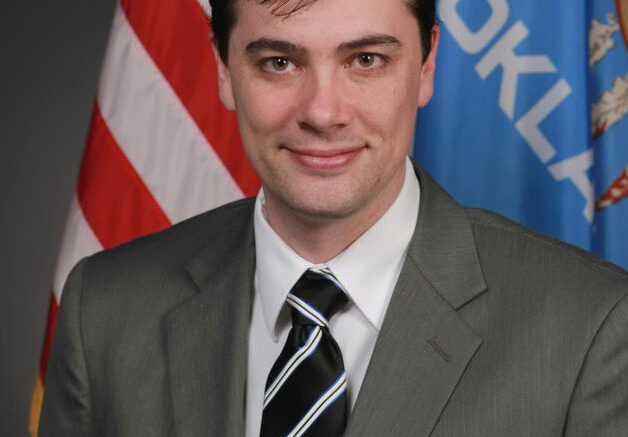The proposal went it into effect this Sunday; however, it was many years in the making. I first filed the proposal as a bill in February of 2010. It contained a simple concept: state government should never unnecessarily add to the financial burden of those who are trying to adopt.
The idea came from a local constituent. He had experienced the complicated process of an international adoption. The process required him to receive multiple apostilles from the Oklahoma Secretary of State’s office. An apostille functions as a notarization by which the state certifies the various documents which are required by the country from which the adoption is occurring. Examples of these documents include tax returns or perhaps a home study.
Affixing the apostille is a simple process for the state to perform but its cost to the adopting family could quickly amount to hundreds of dollars. As he went through the adoption, the constituent discovered that Texas had put a limit on their apostille cost and he asked me if we could do the same in Oklahoma.
I was quickly convinced of the merits of his proposal. There appeared to be little true cost to the state for each apostille and I immediately sensed a certain immorality in government placing an obviously unnecessary financial burden on those who were attempting to do an incredibly good and noble act. It wasn’t as if many of the families couldn’t afford the cost, but it was wrong to charge it in the first place.
I filed House Bill 2323 prior to the start of the 2010 session. It sought to place a cap on the apostille process by which those seeking to adopt would pay no more than $100.
To the casual observer, House Bill 2323 would be a no-brainer. Many Oklahoma elected officials seek office on a family values platform that should naturally align with the intent of this bill. Who would oppose ending the massive government overcharge to adopting parents? Shouldn’t the state encourage these adoptions instead of punishing them?
This quickly became an example of the stark difference between political rhetoric and the reality.
In my personal opinion, our proposal was met with immediate disdain from the Secretary of State’s office. It felt to me as she took personal offense to the idea of state government relinquishing its practice of overcharging and can remember thinking that the family values concept seemed distant to her, almost distasteful even.
Worse, the bill was assigned to a sub-committee chairman, who in my view, shared much of the Secretary’s mindset. He didn’t as much as give the bill a hearing.
This didn’t stop my persistent constituent. He would not let me forget about the proposal. And year after year he ensured we would keep working on it.
We were greatly aided in our effort by the 2010 election of Governor Fallin. Elections have numerous, dramatic, down-the-line consequences which the voters are unaware of and this was one of them. Fallin appointed Glen Coffee as her Secretary of State and with that one appointment, the stance of the Secretary of State’s office changed. Coffee’s office informed me of their support for the proposal. Unfortunately, before we re-filed the bill, Secretary Coffee transitioned out of the office and a new Secretary of State was appointed.
Coffee’s replacement held office for less than a year before receiving an appointment to another post which meant we had to re-start our effort with a fourth Secretary of State.
We could not let the matter drop. The persistent constituent continued to call and follow-up.
This year, with the help of current Secretary of State Chris Benge, State Senator AJ Griffin and I won approval for the proposal. Five and a half years after it was first proposed, it went into law on Sunday.
This experience demonstrates how a single, persistent local citizen made a difference.
Thank you for reading this article. Your interest and input are much appreciated. Please do not hesitate to email Jason.Murphey@hd31.org with your thoughts and suggestions.




Be the first to comment on "The persistent Logan County resident who would not give up"